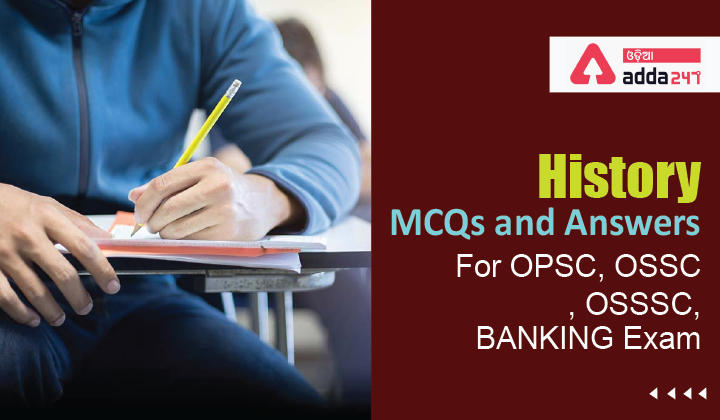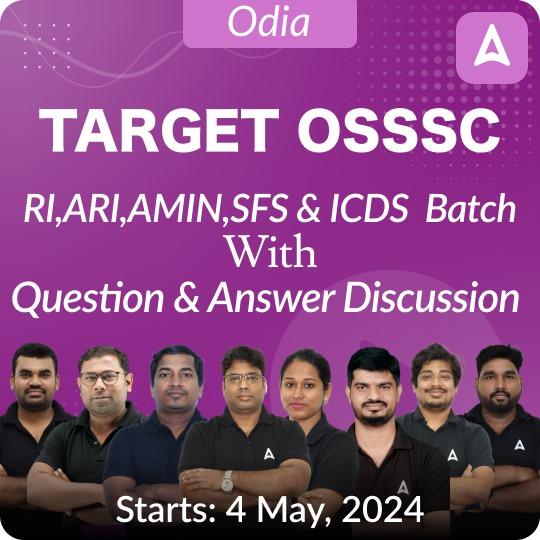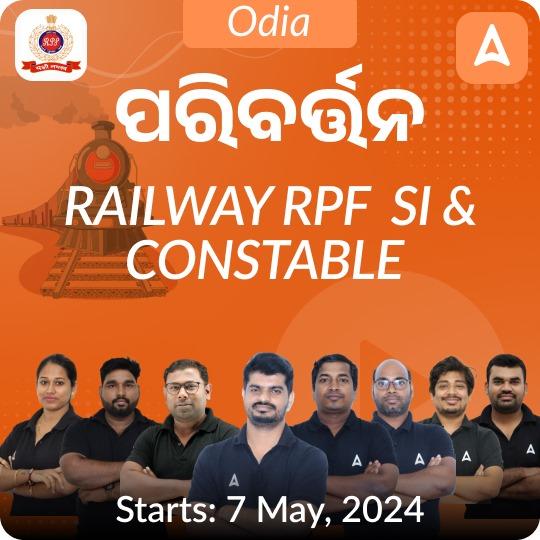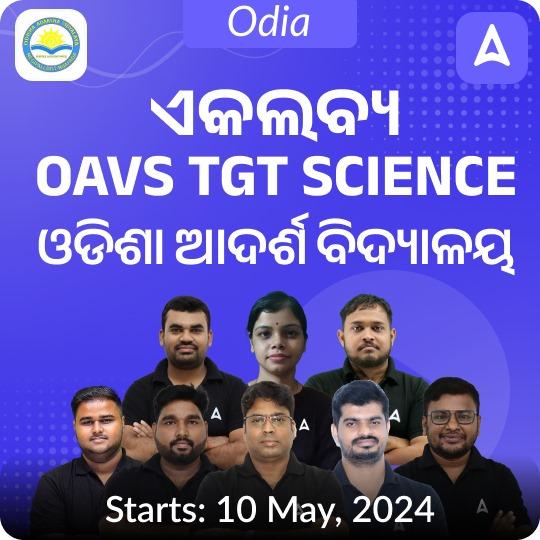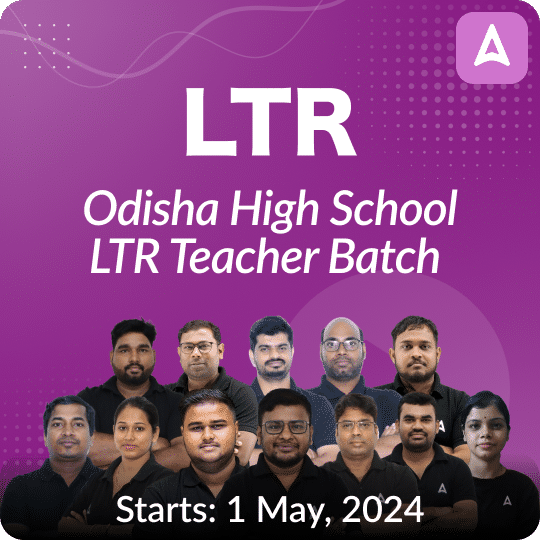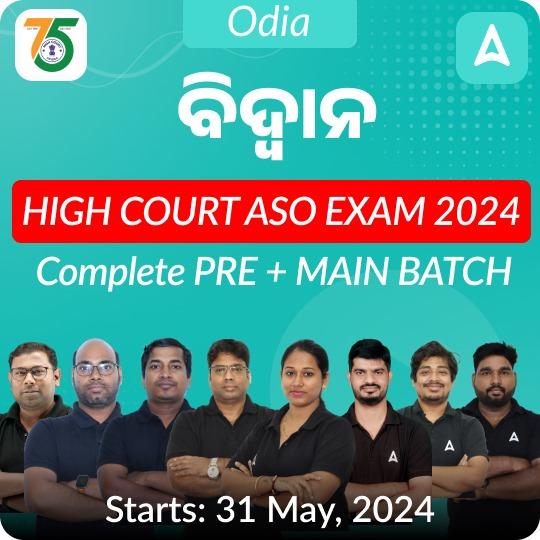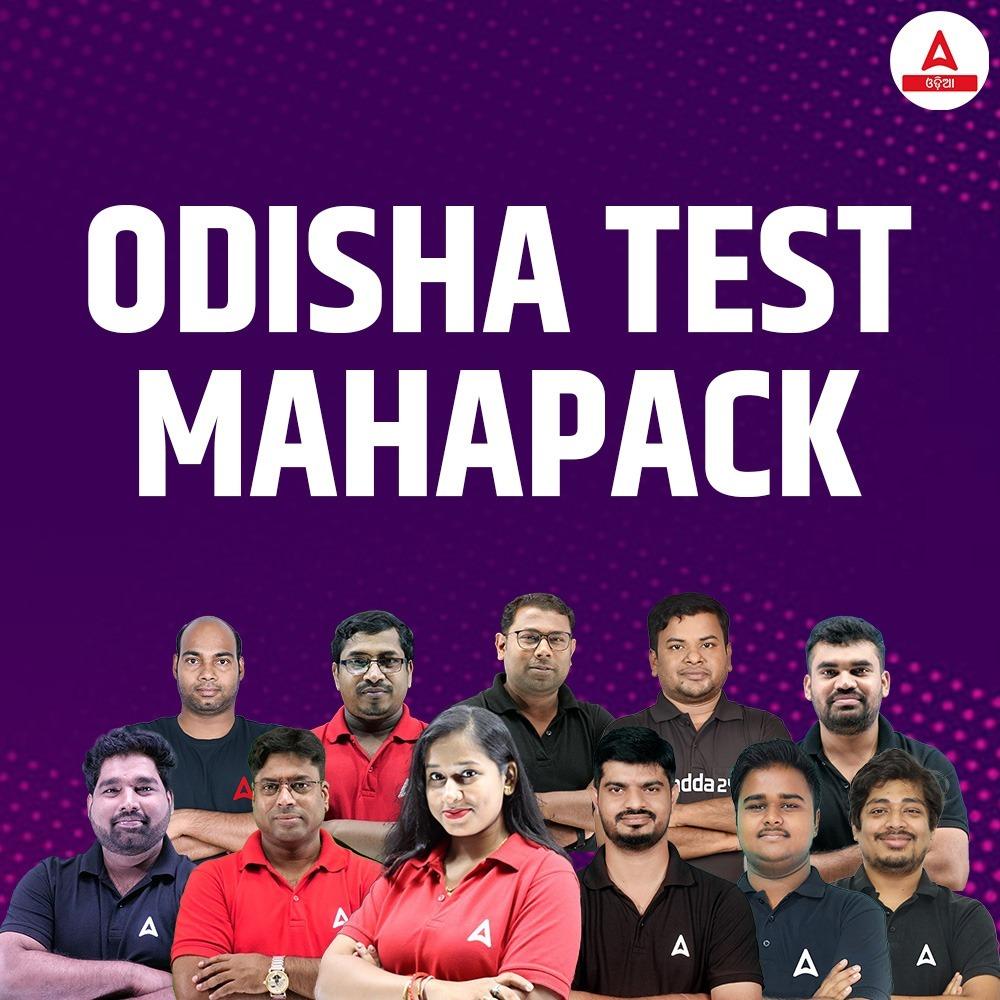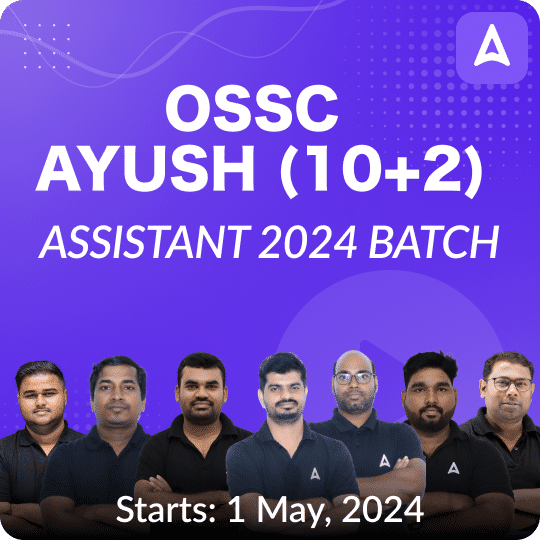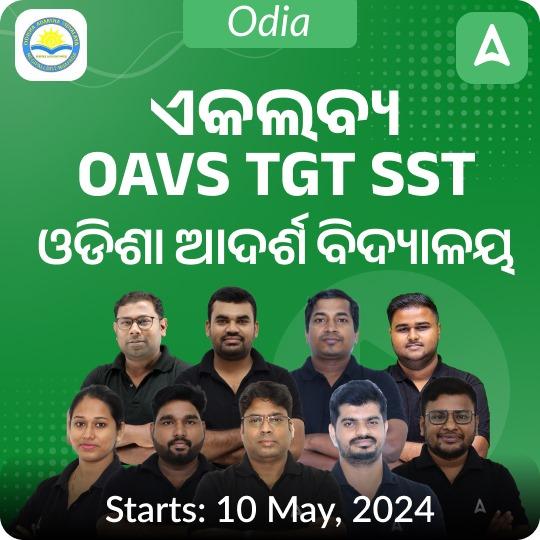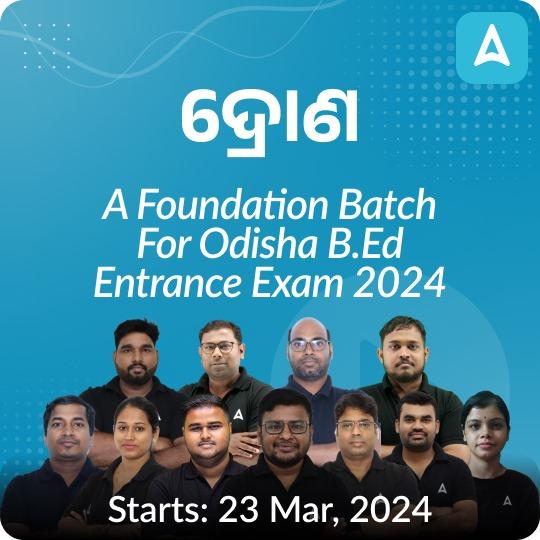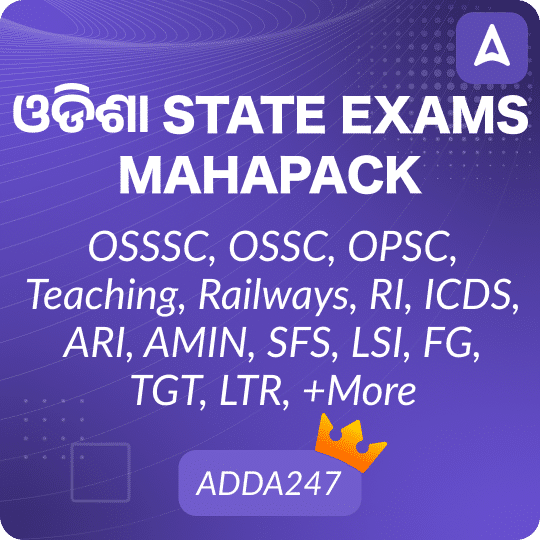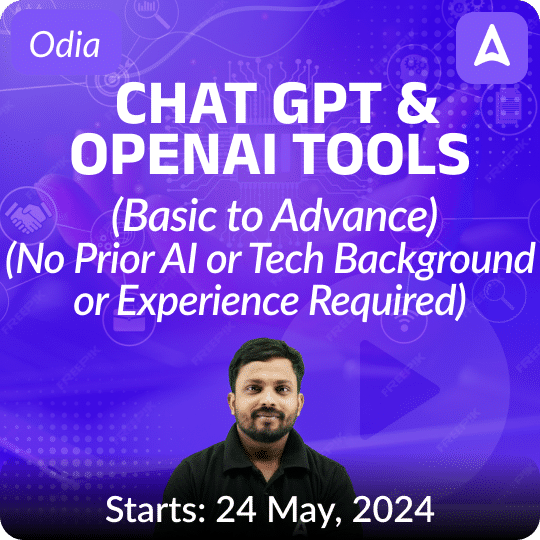History MCQs and Answers: History MCQs are very important for OPSC, OSSC, OSSSC & Other State Exams. Aspirants who are willing to apply for the various Government exams 2022 must go through the topics of History for competitive exams, as History is a key part of the syllabus.
Download ADDA247 Odia APP – Appear Latest Exam Test Series & Live Classes
Q1. During whose tenure was the British rule established?
(a) George Curzon
(b) Lord Dalhousie
(c) Richard Wellesley
(d) Warren Hastings
S1. Ans.(b)
Sol. During Lord Dalhousie’s tenure the British rule was established. The British captured the princely state of Punjab in 1849. The British implemented the policy of the “Doctrine of lapse” which ensured that the kingdom would be annexed to the British Empire if any Indian ruler died without a male heir. Under this policy, the states of Jhansi, Nagpur and Satara were slipped into the British hands.
Q2. For the Karachi session of Indian National Congress in 1931, presided over by Sardar Patel, who drafted the Resolution on Fundamental Rights and Economic Programme?
(a) Mahatma Gandhi
(b) Pandit Jawaharlal Nehru
(c) Dr. Rajendra Prasad
(d) Dr. B. R. Ambedkar
S2. Ans.(b)
Sol. The Karachi session was presided by Sardar Patel. The congress adopted a resolution on Fundamental Rights and Economic Policy which represented the Party’s Social, Economic and Political programme. It was later known as Karachi Resolution and Nehru had originally drafted it.
Q3. Who compared the Dandi March to Napoleon’s March to Paris on his return from Elba?
(a) Dadabhai Naoroji
(b) Lala Lajpat Rai
(c) Subhash Chandra Bose
(d) B. G. Tilak
S3. Ans.(c)
Sol. Subhash Chandra Bose compared the Dandi March to Napoleon’s March to Paris on his return from Elba.
Q4. Who was the Governor General of India during the launch of Civil Disobedience Movement?
(a) Lord Chelmsford
(b) Lord Reading
(c) Lord Irwin
(d) Lord Wavell
S4. Ans.(c)
Sol. On April 3, 1926 Lord Irwin was appointed 30th Viceroy and Governor-General of India. This was the most tumultuous period for the politics of India. During this period the important events were Visit of Simon Commission (1928), Nehru Report (1928), Jinnah’s 14 Points, Murder of Saunders in 1929, Bomb thrown in Assembly Hall in Delhi by Bhagat Singh, civil disobedience movement execution of Bhagat Singh, Rajguru and Sukhdev (1931).
Q5. When did Indian rebellion begin?
(a) 1843
(b) 1848
(c) 1856
(d) 1857
S5. Ans.(d)
Sol. The Indian Rebellion of 1857 began at Meerut. The rebellion is also known as India’s First War of Independence, the Great Rebellion, the Indian Rebellion, the Indian Mutiny, the Revolt of 1857, the Rebellion of 1857, the Uprising of 1857, the Sepoy Rebellion and the Sepoy Mutiny.
Q6. Who ordered the Jallianwala Bagh massacre?
(a) Michael O’Dwyer
(b) Nigel Collett
(c) Reginald Dyer
(d) SaifuddinKitchlew
S6. Ans.(c)
Sol. Reginald Dyer ordered the Jallianwala Bagh massacre.
On April 13, 1919, thousands of Hindus, Sikhs and Muslims gathered in the Jallianwala Bagh garden in Amritsar and they were gunned down.
Q7. Who attend the Congress of Oppressed Nationalist at Brussels in 1927, on behalf of the National Congress?
(a) Jawahar Lal Nehru
(b) Mahatma Gandhi
(c) Dr. Ansari
(d) Moti Lal Nehru
S7.Ans.(a)
Sol. Jawahar Lal Nehru attended the Congress of Oppressed Nationalist at Brussels in 1927, on behalf of the National Congress.
Q8. Under whose leadership was the Congress Socialist Party founded in 1934?
(a) Jawahar Lal Nehru and Mahatma Gandhi
(b) Acharya Narendra Dev and Jai Prakash Narayan
(c) Subhas Chandra Bose and P.C. Joshi
(d) SaifuddinKitchlew and Rajendra Prasad
S8.Ans.(b)
Sol. The Congress Socialist Party was founded in 1934 as a socialist caucus within the Indian National Congress under Acharya Narendra Dev and Jai Prakash Narayan.
Q9. Which one of the following with regard to the Poona Pact, 1932 is NOT correct?
(a) Adequate representation of depressed sections in Government jobs
(b) Reservation of seats for the depressed classes in the provincial legislature
(c) Acceptance of joint electorate system
(d)Reservation of seats for the depressed classes in the central legislature
S9.Ans.(a)
Sol. The Poona Pact was the agreement between Mahatma Gandhi and Dr. Br Ambedkar reached on 25 September 1932. It has provision of reservation of seats in the provincial legislatures and adequate representation in civil services.
Q10.Which of the following was not advocated by Mahatma Gandhi?
(a) Prohibition of liquor
(b) Heavy Industries
(c) Village Panchayat
(d) Dignity of Labour
S10.Ans.(b)
Sol. Mahatma Gandhi hadn’t advocated Heavy industries, Gandhiji always propounded that agriculture should be supported by some subsidiary occupations like bee keeping, animal husbandry, khadi, paper making, mud utensils making etc.

Q11. Ramsay Mc Donald’s Communal Award gave—
(a)Privy purse to native princes
(b)Communal representation to Muslims
(c)Reservations to Sikhs in elections
(d)Separate electorates for depressed classes
S11.Ans.(d)
Sol. The Communal Award was made by the British Prime Minister Ramsay MacDonald on 16 August 1932 granting separate electorates in India for depressed classes.
Q12. Who wrote Akbarnama?
(a) Akbar
(b) Birbal
(c) Abul Fazal
(d) Bhagavan Das
S12. Ans.(c)
Sol. Abul Fazl was the author of Akbarnama, the official history of Akbar’s reign in 3 volumes. This book gives the history of Akbar’s forefathers from Timur to Humayun and Akbar’s reign till 1602 AD. Abul Fazl was one of the nine jewels in the royal court of Akbar.
Q13. Who among the following witnessed the reigns of eight Delhi Sultans?
(a) Ziauddin Barani
(b) Shams-i-sirajAfif
(c) Minhaj-us-siraj
(d) Amir Khusrau
S13. Ans.(d)
Sol. Amir Khusrau (1253-1325) is regarded as the “father of qawwali” .He was an Indian musician, scholar and poet. He was an iconic figure in the cultural history of the Indian subcontinent.He is said to have witnessed the reigns of eight Delhi Sultans from ‘Ghiyasuddin Balban to Sultan Muhammad bin Tughluq’.
Q14. The first Indian Hindi Scholar of the Mughal period was
(a) Malik Muhammad Jayasi
(b) Abdur Rahim
(c) MullaWajhi
(d) Chand Bardai
S14. Ans.(a)
Sol. Malik Muhammad Jayasi was the first Indian Hindi Scholar. Malik Muhammad Jayasi (died 1542) was an Indian Sufi poet and pir. He wrote in the Awadhi language, and in the Persian Nastaʿlīq script. His best known work is the epic poem Padmavat.
Q15. Which of the following revolts during Aurangzeb’s period had a peasant agrarian background?
(a) Rajputs
(b) Jats and Satnamis
(c) Marathas
(d) Sikhs
S15. Ans.(b)
Sol. Satnamis, who were actually Hindus rebelled against Aurangzeb in 1672. Their leader was Birbhan. Satnamis lived in the region around Delhi. Satnamis fought with courage but they were defeated by the imperial army of Mughals and crushed to death. Jats also rebelled against Aurangzeb under the leadership of local Zamindar Gokala. They were never subdued completely and continued to resist the Mughal rule and when Aurangzeb died, they succeeded in establishing an independent Jat kingdom in Bharatpur.

